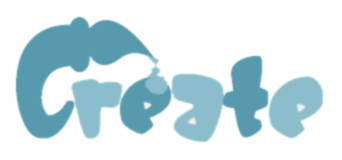Conference
Validation of self-aCquired learning and cREdits trAnsfer in web design and compuTEr animation
/CREATE Conference/
Date: 20th September 2013
Venue: Sofia, Bulgaria
in the frame of “Leonardo da Vinci” project № 2011-1-BG1-LEO05-05036
Aim:
The aim of CREATE conference is to present the current situation and tendencies in the validation of informal (self-acquired) learning. Having in mind that validation and recognition of learning outcomes is closely related to ECVET (The European Credit System for Vocational Education and Training), the additional aim of the conference is to enlighten on the current tendencies in ECVET.
Context:
Often people engaged in creative fields such as web design and computer animation have gained their knowledge, skills and competence through a kind of informal learning. Informal learning occurs in a number of places like learning at home, work, during daily interactions or sharing knowledge in communities. Gradually validation of the results of informal learning has become a EU priority in the field of VET being “seen as a way of improving lifelong and life-wide learning”.
Although addressed to a different extent in various EU countries, the issue of validation of the results of informal learning is still insufficiently explored and undeveloped in Europe.
In 2005 Germany allowed for the possibility of validation of non-formal learning. However this is not widely practiced and there is a need for a formalised validation system. Germany is certification orientated in terms of learning, and in order to recognise prior learning the learners must take an exam to validate their knowledge. To be considered eligible to take an exam of this nature, the learners must have the ability to demonstrate that they have 1.5 times the vocational experience that a formalised training course would require. Additional vocational certificates obtained by the learner can also be used to gain admission for the exam. Workplace learning is another method adopted by Germany to assess informal learning in their IT continuing and training system where learners are certified in the private sector. Germany also recognises credit for knowledge between vocational education and higher education through the recognition of competencies acquired in the vocational setting, though this is not thought to be widely known nor very transparent to the learners in Germany.
Bulgaria currently has legislation for the vocational certification of learners who have trained outside of the VET system. In order to become certified the learner must be able to demonstrate that they have 6 months experience in the profession or that they have completed practiced training for a duration as specified by the specific training programme. Education to a specified standard/level necessary for the profession is also certified. However this looks at learners who have received training and so Bulgaria looked to EU best practice for RPL of informal learning and the methods adopted to assess and validate and in 2008/2009 developed a system for validation of professional competences acquired through non-formal and informal training. This system categorised the methods for assessment for validation into two; objective tools and subjective tools. The objective tools included evidence extracted from work practice, training and professional development portfolio, references, test or exam and practical observation. The subjective tools include CV, self-assessment and personal portfolio.
The Irish system for RPL is Learning Outcome specific meaning the formal and informal learning RPL is being sought for will be measured and validated in terms of the learning outcomes of the programme/qualification. RPL traditionally in Ireland can be used to access programmes and awards, as credit towards a qualification or as an exemption from a certain part(s) of a programme. An AONTAS (Irish National Adult Learning Association) survey in 2009 revealed that 81% of their clients had more than 10 years’ experience since completing formal education and recognised the he need for RPL for informal learning. RPL strategies are implemented across the Educational Institutions in Ireland and within the National Framework of qualifications, however, this practice is largely ad hoc and level of activity can vary widely between education providers. Methods adopted by the Irish Educational Institutions include interview, portfolio, exams and tests, practical observations and project evaluations.
In 2008 the OECD released a report on Thematic Review and Collaborative Policy Analysis Recognition of Non-Formal and Informal Learning, where the different approaches to validation methods/tools adopted by countries was highlighted.

